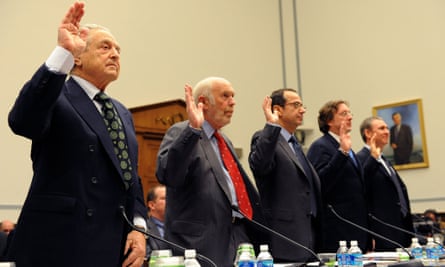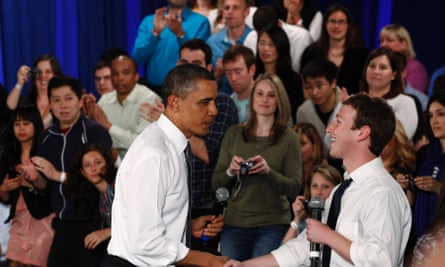Once upon a time, we had the imperial CEO to worry about: the business leader who ruled in the manner of Augustus over his corporate empire. Jack Welsh at GE. Lee Iacocca at Chrysler. Sam Palmisano at IBM.
Like those emperors of yore, they made sweeping, unilateral decisions, cherished their celebrity perks and ran roughshod over their boards of directors, employees and shareholders. Think Home Depot’s Ralph Nardelli, who set up giant timers at the company’s annual meetings and refused to answer questions about his (lavish) pay, set by a (too cozy) compensation committee.
The Home Depot board finally ousted Nardelli in 2007 after years of underperformance, leading some to declare an end to the imperial CEO trend.
What, or who, comes next? Power, like nature, abhors a vacuum. The search for the new kind of CEO is on.
The “boardroom liberal” may be the new catchword for a successful leader.
Boardroom liberal is the appealing new phrase that made its debut in last week’s New Republic feature on the role played by White House advisor Valerie Jarrett.
The article’s author, Noam Scheiber, defined the boardroom liberal as the progressive CEO of many liberal’s dreams. “It’s a worldview that’s steeped in social progressivism, in the values of tolerance and diversity,” Scheiber writes.

Then the snark emerges.
The picture of a boardroom liberal, you see, “is a corporate CEO handing a refrigerator-sized check to the head of a charity at a celebrity golf tournament. All the better if they’re surrounded by minority children and struggling moms.”
In other words, if the imperial CEO has exited stage left, this new kind of CEO has entered stage right, and the main thing he has learned is to master the optics.
Like Bill Gates, these current and former CEOs are philanthropists on a scale the world has never witnessed before. Or, like Facebook’s Mark Zuckerberg, they’re in training to take on that role. (Zuckerberg earned the title of the country’s most generous philanthropist last year.) Even those who firmly own their capitalism, like Jamie Dimon of JP Morgan or Jeff Immelt of General Electric, make sure to be conspicuous about their good works. Dimon drove JP Morgan to invest in businesses in Detroit, and Immelt headed Obama’s now-disbanded jobs council of CEOs, devoted to finding a way to create jobs.
But even as the boardroom liberals use their power – from their wealth to the various kinds of clout that wealth has brought them – to transform the world for the better, they aren’t really advocating any changes in the power structure. The levers of power stay firmly in the hands of the elite. There’s just more noblesse oblige.
It’s not just the corporate do-gooders. Consider billionaire hedge fund managers as part of this trend, too. After all, the foundation of choice for those who toil in “Hedge Fund Alley” in New York is the pointedly named Robin Hood Foundation, which throws one of the city’s most lavish gala events every spring. Last May, Robin Hood raised $60m, “stealing” from the ultra, ultra wealthy to “give” to the poor.
Of course, the “theft” is in the form of tax-deductible donations of a tiny fraction of the very large compensation packages by hedge fund managers and other finance professionals known for backing progressive causes.
These include folks with household names like George Soros, who famously outwitted the Bank of England in the early 1990s. It also includes lesser-known hedgies like Jim Simons, a big donor to the Obama campaign in both 2008 and 2012, and Eric Mindich, who not only had one of the biggest hedge fund launches in history, but was one of the president’s biggest “bundlers” in 2012.

How liberal, really, are these boardroom liberals?
Mind you, these are the same people who squawk, very loudly, at any suggestion that the fees they collect for managing their funds should be taxed as ordinary income, instead of as capital gains.
They’ve been fighting for years any suggestion that their primary source of income should be taxed at the same higher rates as those people whom their philanthropy helps.
If the tax rate changes, those millionaires and billionaires would be paying an effective rate of 39%, rather than 20%. With that kind of tax revenue, perhaps the government wouldn’t be slashing away at social programs that now have to come, cap in hand, to the Robin Hood Foundation to ask for some of those refrigerator-sized checks. Then the philanthropists can make their decisions based on whatever personal criteria they find most compelling.
That’s not to take away from what the Robin Hood Foundation’s do-gooders accomplish. Without them, life would be a lot tougher for New York’s poorest citizens. Being a boardroom liberal may very well be better than being a boardroom tyrant, terrorizing your staff from the chief financial officer down to the guy in the mailroom.

But the reason boardroom liberals need to exist at all is the fact that the social safety net that once existed has collapsed, and while some of that can probably be traced to waste and mismanagement, another giant chunk is simply due to lack of resources.
Consider: US tax revenues are at their lowest rate since 1950, which means less money to fund government programs. At the same time, US income inequality is at its highest point since the Great Depression, meaning the rich are richer than they were even a few years go.
Then, too, being a CEO doesn’t automatically make someone wiser or benign. That’s what CEOs have found as they’ve tried to engage in some of the toughest policy questions, like education reform. They’re working top-down, convinced that the hierarchies of corporate America define the rest of the world too. This philosophy holds that elite are wise, and those beneath the elites should heed that wisdom, especially when the members of those elites come bearing gifts and uttering sincerely held liberal, progressive views. Just because it comes in sound bites and not stone tablets is no obvious reason to reject it.
Life just doesn’t work that way, as those who have dabbled in education reform have discovered. Mark Zuckerberg pledged $100m in 2010 to revive and transform public schools in Newark, New Jersey, only to see most of that money vanish, as if into a sinkhole. The gift wasn’t terribly well thought out, critics have said, and suffered most from its top-down nature and the lack of inclusion from the local community. Without the money to buy a seat at the table, Newark residents wouldn’t have input into the process that would determine their children’s education.
Boardroom liberals may be a vast improvement on their imperial CEO predecessors. But the fact that they are compassionate and progressive is only half the battle.

Comments (…)
Sign in or create your Guardian account to join the discussion